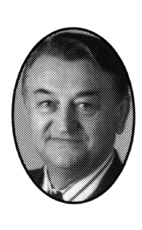Mr. Speaker, I wish to set the record straight. The hon. member has raised three important issues. One is the Canadian delegation participating in the 75th anniversary of the founding of the Turkish Parliament on April 23. The other is the human rights violations against the Kurds in northern Iraq and against some parliamentarians, that he explained in detail. The third issue is the sale of the CF-5 aircraft to Turkey.
I would like to begin by addressing the first two issues. The hon. member received an excellent answer from the Prime Minister when he asked the question on March 28. The Prime Minister in his reply said: "It might be a good occasion for the ministerial delegation to raise the issue of human rights with the government when it is there". He also said: "Perhaps one way is to cancel the delegation or the other way is to send the delegation with a mandate to talk about it".
It is interesting what the member does when he sees human rights violations. He hops a plane and gets out there, whether it is the Middle East, China, Africa. He makes the headlines. He is the champion of fighting human rights violations. I compliment him for it.
In this case, for other Canadians, he says: "Don't go there. It's okay for me to go there, but don't go there. You Canadians stay home; don't go there". I think the hon. member would agree with me that the best way to address these human rights violations with Turkey is to go and present it to them face to face.
We have continually made representations to the Turkish government through our ambassador in Ottawa, through the embassy in Ankara. As far back as last June the Minister of Foreign Affairs raised the issue with his then Turkish counterpart, Mr. Çetin, who is now the Deputy Prime Minister of Turkey.
I am sure these kind of direct interventions, face to face interventions, go a long way. Boycotting that country and not talking to them is not going to give them the message. We have to get there and approach them eyeball to eyeball on this situation. That addresses the first two issues.
As far as the sale of the CF-5s is concerned, again I do not know why the member is making such a fuss over the issue. Just after question period today I asked the Minister of Foreign Affairs about this. There is no sale of CF-5s to Turkey. That is as recent as today. I hope the hon. member will pass that on to his constituents and to other Canadians. Yes, we have surplus planes. Yes, countries are interested in purchasing them. The price is a little lower because they are surplus and used. As of today, there is no sale of CF-5s to Turkey.
I thank the hon. member for his intervention, but I hope he will not be hypocritical-

